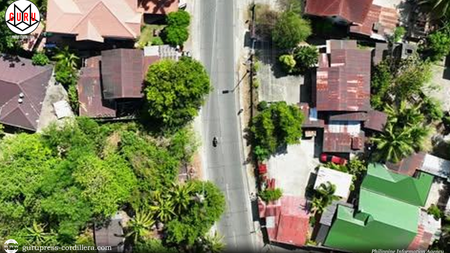
BPF Tabuk reminds public to remain alert and cautious when going to rivers for picnic
Tabuk City, Kalinga – With families going out to rivers for a picnic this Holy Week, the Bureau of Fire Protection Tabuk reminds the...
Leonora Lo-oy
13 hours ago1 min read
23
0

P77.2M road rehabilitation connecting Bangued and Tayum, Abra underway
Bangued, Abra—Abrenians will soon have better, safer, and faster access between the towns of Bangued and Tayum as the Department of...
Mark Moises Calayan
16 hours ago1 min read
30
0

DON’T DRINK AND SWIM: Drunk construction worker drowns in Echague river
Isabela, Philippines - Authorities did not fall short in reminding the public in hopes of preventing untoward incidents during the...
Menchie Kinao-Puerto
16 hours ago1 min read
79
0

iTinglayan newbie fighter wins silver medal in international jiu-jitsu
Tabuk City, Kalinga – A 19-year-old newbie jiu-jitsu fighter from Tinglayan has made his kailyans proud after winning a silver medal in...
Leonora Lo-oy
16 hours ago1 min read
36
0

GOING for a SWIM: Visit Asilan picnic site in Brgy. Lucog, Tabuk City
If you’re looking for a refreshing place to swim, relax, or camp out this holy week, the Asilan Picnic Site in Sitio Balatoc, Barangay...
Mark Moises Calayan
16 hours ago1 min read
63
0

16-yr.-old iKalinga fighter wins two gold medals in International Jiu-jitsu Open Championships
Tabuk City, Kalinga – When one has the passion for something, he can make things work, just like iKalinga teen fighter, Alexander Tagure...
Leonora Lo-oy
16 hours ago1 min read
26
0

36-yr.-old man found injured in a canal in New Tanglag, Tabuk City
Tabuk City, Kalinga – A 36-year-old man was rushed by the authorities to the hospital after he was found injured at a canal Friday...
Leonora Lo-oy
16 hours ago1 min read
852
0

211 learners from all barangays of Santa Marcela finish early childhood education; Mayor Martinez highlights value of preparation
Santa Marcela, Apayao-A total of two hundred eleven (211) young learners across the 13 barangays in Santa Marcela this year have...
Arjay Baysa
2 days ago1 min read
17
0

‘No campaigning on Maundy Thursday and Good Friday’—COMELEC
Tabuk City, Kalinga — The country’s Commission on Elections (COMELEC) is reminding political candidates, as well as their supporters, to...
Mark Moises Calayan
3 days ago2 min read
22
0

‘Spare the trees’ - DENR-CAR, COMELEC tell politicians to stop using trees as billboards
Tabuk City, Kalinga - As the election season ramps up across the Cordillera region, a quieter but pressing concern is emerging: trees are...
Mark Moises Calayan
3 days ago2 min read
14
0

DOST SCHOLARSHIP: Over 100 aspiring scientists, engineers in Kalinga take DOST undergraduate grant exam
Tabuk City, Kalinga – More than a hundred aspiring scientists and engineers in Tabuk City join thousands of students seeking to be the...
Leonora Lo-oy
3 days ago1 min read
67
0

PIG REPOPULATION: Ifugao gets P10M swine multiplier farm, techno-demo projects to boost hog production
Lamut, Ifugao - Hog production in Ifugao and in the Cordillera region as a whole is poised for recovery and growth with the ongoing...
Mark Moises Calayan
3 days ago2 min read
126
0

ISU-Ilagan student develops app for leave requests online to improve HR operations
Faculty and staff of the Isabela State University-Ilagan Campus will no longer need to file their leave requests using traditional means...
Mark Moises Calayan
3 days ago1 min read
110
0

38-yr.-old fighter from Tanudan, Kalinga win gold in international Taekwondo fight
Tabuk City, Kalinga – After nearly two decades of not joining combat competition, a 38-year-old dad from Tanudan came back to the sports...
Leonora Lo-oy
3 days ago2 min read
110
0

More war armaments seized from NPA guerilla in Apayao
hKabugao, Apayao – Suspected New People’s Army guerrillas in Apayao lost more war armaments in a series of firefights with the military...
Leonora Lo-oy
3 days ago1 min read
56
0

.png)






































Kommentare